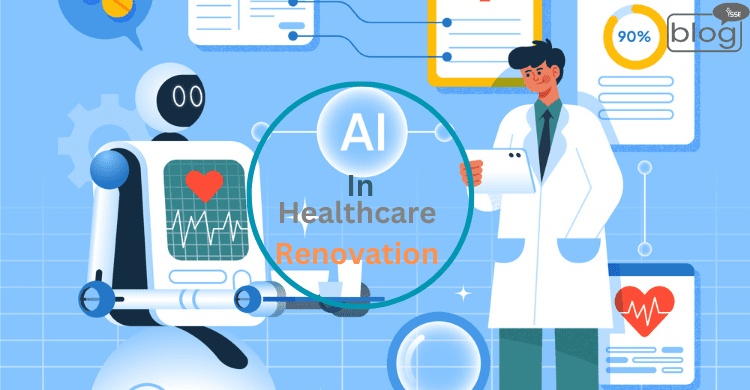Healthcare is being revolutionized by artificial intelligence (AI), which makes computers and programs capable of doing activities that need human intelligence. Administrative and medical procedures are changing as a result of it, especially when it comes to early illness detection and diagnosis. AI has the potential to optimize healthcare services, raise productivity and safety standards, and improve the quality of human life. In order to improve overall patient care, the healthcare industry uses technologies such as robotics, big data, and machine learning to track and evaluate prospective benefits and drawbacks.
Artificial intelligence (AI) has a big and diverse role in the modernization of healthcare. Here are a few crucial elements:
- Medical Imaging and Diagnostics
AI systems are capable of processing MRI, CT, and X-ray pictures with ease. This improves efficacy and precision in the early identification and diagnosis of illnesses, ultimately improving patient outcomes.
An FDA-approved AI system named IDx-DR is the subject of a Nature Medicine paper. Retinal scans are used by this technique to identify early signs of diabetic retinopathy, which is the main cause of vision loss. Clinical trials are currently being conducted to evaluate the system, and the results indicate that it can detect the sickness and prevent eyesight impairment.
- Personalized Treatment Plans / Precision Medicine
By evaluating vast amounts of patient data, including genetic information, medical histories, and lifestyle decisions, AI is able to develop individualized treatment plans that improve treatment efficacy, minimize side effects, and encourage patient compliance.
Tempus uses artificial intelligence (AI) and machine learning to analyze clinical and molecular data, enabling healthcare providers to tailor cancer treatment based on each patient’s unique genetic profile, medical history, and other factors.
- Drug Discovery and Development
By evaluating molecular structures, predicting drug interactions, and simulating clinical trials, AI algorithms have the potential to expedite the process of finding and developing new pharmaceuticals. This might lead to the more timely and economical release of novel treatments onto the market.
An open-source platform called DeepChem offers machine learning capabilities for predicting drug-target protein interactions, finding possible drug targets for certain diseases, predicting medication side effects, and helping with clinical trial design selection.
- Virtual Health Assistants and Chatbots
Artificial intelligence (AI)-enabled chatbots and virtual assistants improve access to healthcare by offering individualized health advice, responding to inquiries about health, and setting up appointments, especially in underserved or distant locations.
Babylon Health provides consumers with basic health information, schedules appointments, and responds to questions using Natural Language Processing and Machine Learning.
- Predictive Analytics and Preventive Care
By continuously monitoring vital signs and activity levels, machine learning algorithms analyze health data in order to identify possible health risks, notify patients and medical staff, facilitate timely intervention, and maybe prevent consequences.
By utilizing artificial intelligence (AI), AliveCor’s ECG monitor can identify abnormal heartbeats and notify users about probable cardiac problems. This may potentially prevent strokes by facilitating the early detection and treatment of diseases such as atrial fibrillation.
To read more blogs, click here
Writer
Abdullah Jaman
Intern, Content Writing Department
YSSE

